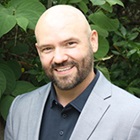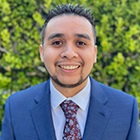ENDVR Fellowship Overview
The Emergency Nursing Diverse Voices Research Fellowship program seeks to support and mentor beginning researchers who are members of underrepresented communities. Launched in 2022 through support from the ENA Foundation and in collaboration with the ENA DEI Committee, the ENR Advisory Council seeks to mentor the next generation of researchers by ensuring all voices are at the table.
Successful applicants will engage in an 18-month to two-year experience in identifying and answering clinically based research questions. Funding for hotel and travel to required meetings, registration for events, and grant funding for research projects up to $500 are provided by the ENA Foundation.
ENDVR Eligibility Requirements
- Must be a licensed nurse or nursing student.
- Must be a member of an underrepresented community.
- Research line of inquiry must be applicable to the emergency care setting; it does not require that you are interested in researching specific communities or groups of patients.
Now accepting applications through Feb. 27. ENDVR Fellowship Application
Meet the 2023 ENDVR Fellows
 Brian Burns, DNP, MS, currently works as a clinical nurse specialist in the emergency department at Seattle Children’s Hospital. As part of his job, he works with nurses and providers in the emergency department to help ensure optimal outcomes for patients with complex health needs. He is currently pursuing a PhD at the University of Washington where he is studying individual and systems level factors that influence the adherence to practice guidelines related to the care of patients with sickle cell disease. As part of the ENDVR fellowship, he is hoping to research ways that teams work together to improve patient outcomes.
Brian Burns, DNP, MS, currently works as a clinical nurse specialist in the emergency department at Seattle Children’s Hospital. As part of his job, he works with nurses and providers in the emergency department to help ensure optimal outcomes for patients with complex health needs. He is currently pursuing a PhD at the University of Washington where he is studying individual and systems level factors that influence the adherence to practice guidelines related to the care of patients with sickle cell disease. As part of the ENDVR fellowship, he is hoping to research ways that teams work together to improve patient outcomes.

Samuel Gaona, BSN, RN, is a RN II in the emergency department at Healdsburg Hospital in Sonoma County, California. In his role, he provides direct patient care in the emergency department. In addition, he also reconciles the department's lab culture log ensuring patients are sent home with the appropriate antibiotic following their discharge from the emergency department.
As part of the Emergency Nursing Diverse Voices Research fellowship, Samuel will look at how EDs can better serve the Spanish-speaking patient population. Some key areas he is interested in are: Exploring how to reduce recidivism rates in the emergency department for this population that may result in admissions or transfers for higher level acuity facilities; if resources such as translating services or bilingual staff affect recidivism; and looking at the possibility that the populations literacy, health literacy or comprehension is lower than what is provided in the emergency department for items such as printed discharge instructions.
